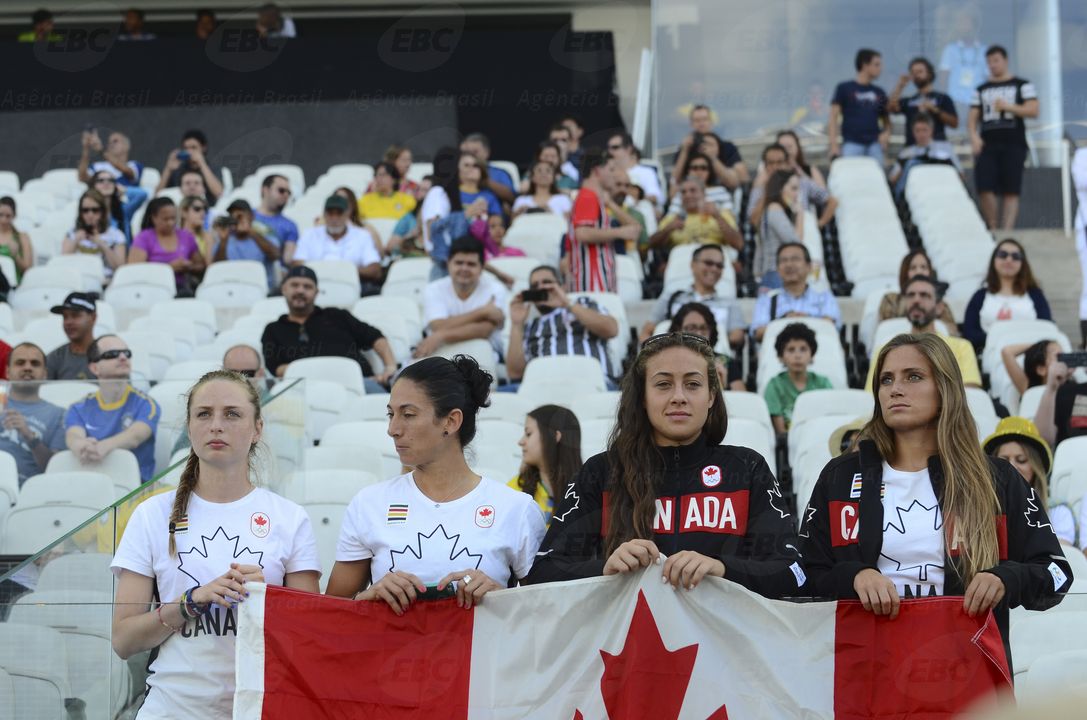
Canadian women redefine male-dominated narrative at 2016 Summer Olympic Games
By Mariah Wilson, August 30 2016 —
The Rio Olympics have come and gone. Medals were won. Olympians have travelled home. The world breathed a sigh of relief after another historic summer Olympics came to a close.
Compared to the Winter Olympics, Canadians don’t see as much success in the Summer Games. But Canada was a force to be reckoned with during the Rio Games. Our nation was spellbound from the moment Penny Oleksiak dipped her toes into the pool and Canada’s women’s rugby sevens won the sport’s first ever Olympic bronze medal. Out of the 22 medals Canadians took home, 16 of them were earned by female competitors.
Despite the success of female athletes, sexism still underscored many women’s successes. A Chicago newspaper referring to American bronze medal trapshooter Corey Cogdell-Unrein as the wife of a Chicago Bears definsive end lineman. An American commentator claimed the U.S. women’s gymnastics team “might as well be standing around at the mall.” A U.K. newspaper writing about the tan lines of a Canadian heptathlete. All these make it clear that spectators of the Olympics still have trouble identifying women as valuable athletes compared to their male counterparts.
While it shouldn’t be surprising that female athletes excel in their respective sports, it’s still difficult for sports commentators and spectators to grasp a newer narrative of female competitors being ‘heroes’ and ‘champions’ in the sporting arena. The history of male athletic domination is long and entrenched and its effects are seen in nearly every level of sports involvement, from the participation rates of younger athletes, to coaching staff, management and media coverage.
Fortunately, this year’s Olympic Games show that sports fans don’t need to look far for examples of exceptional female athleticism. And the University of Calgary has its own Olympic hero to welcome home — gold medalist Erica Wiebe.
For those who missed the match, it was Kazakhstan’s Guzel Manyurova versus Canada’s Wiebe in the 75-kilogram women’s freestyle wrestling final. Blue versus red. Stoicism versus passion. Wiebe brought everything to the seven-minute match, and as a nation watched perched on the edge of our seats, we felt like we had won every single of the six points with her. When the referee raised Wiebe’s hand in triumph at the end, neither Canadians nor Wiebe could contain their excitement and pride. Wiebe’s story of success ended with the playful act of placing her coach on top of her shoulders. As a campus, community and nation, it was a success many of us will never forget.
Performances like Wiebe’s remind Canadians of the overarching success that can be accomplished by female athletes. In a culture dominated by stories of male athletes, a gold medal win by a female Canadian is a necessary reminder to the nation that women’s athleticism is a worthwhile investment.
Wiebe may be the best 75-kilogram wrestler in the world, but this isn’t the end of her story. She’s setting her sights high for the upcoming generations of young Canadian athletes. As an ambassador for Fast and Female, Right to Play and KidSport Calgary, she’s inspiring young women and girls to pursue sports and channel their passions.
Female athletes face many unique challenges — underrepresentation and lack of coverage in a male-dominated industry is only one of them. But through her hard work, perseverance, and optimistic attitude, Erica Wiebe proved the strength of women to all of Canada. Her fearlessness proves there’s no limit for any athlete — especially female competitors.
It’s necessary for our generation to inspire young girls to test the strength and limits of their bodies to achieve greatness. The success of Team Canada’s women in Rio this year proves female athletes are more than capable of achieving exceptional athletic feats. Hopefully, that success will convince all of Canada to wholeheartedly support them.
It’s irresponsible for coverage of female sports to consist of a woman’s tan lines or love life. We need more representation of athletic performances like Wiebe’s to inspire young girls to reach their potential in sports.
As we prepare for the next Summer Olympics — in the words of Jen Kish, captain of the Canadian women’s rugby sevens team — we just need a little “girl power, right?”
